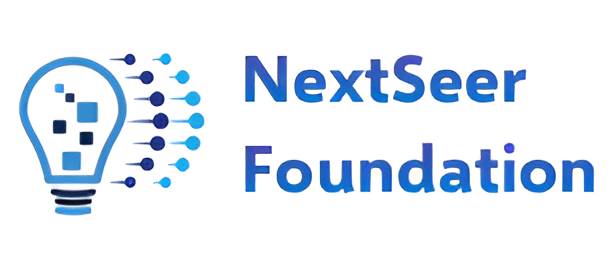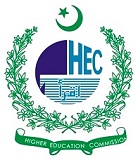Publication Policy
Frequency of Publication:
The Journal of Computers and Intelligent Systems (JCIS) is an open-access, peer-reviewed journal published on a biannual basis. JCIS is committed to publishing high-quality studies in economics and its subfields. It is indexed in reputed indexes, both nationally and internationally. JCIS follows the guidelines and policies of the Committee on Publication Ethics (COPE) and HEC guidelines and policies for publishing quality research.
Timeline of publication
JCIS is published biannually, and two issues are published in each volume.
Authorship of the Paper
Authorship credit in JCIS is given to only persons who made substantial contributions to the work reported in the manuscript (such as technical help, writing and editing assistance, and general support). It is the responsibility of the corresponding author to ensure that any person who does not meet the criteria for authorship is not listed as an author. Any person who has not substantially contributed to the manuscript but provided some support should be acknowledged in the "Acknowledgements" section after their written permission to be named has been obtained.
Changes in authorship
Any changes in authorship before or after publication must be agreed upon by all authors, including those being added or removed. It is the responsibility of the corresponding author to obtain confirmation from all co-authors and to provide the completed Authorship Change Request form to the editorial management. If a change in authorship is necessary after the publication of the article, this will be amended via a post-publication notice. Any changes in authorship must comply with our criteria for authorship, and requests for significant changes to the authorship list after the article has been accepted may be rejected if clear reasons and evidence of author contributions cannot be provided.
Originality and plagiarism policy
The Journal of Computers and Intelligent Systems is published by the Department of Computer Science, the Islamia University of Bahawalpur. The Islamia University of Bahawalpur, Pakistan, has a membership in Turnitin a database to help the editors verify the originality of submitted manuscripts. All submitted manuscripts are scanned with Turnitin to calculate the similarity index or plagiarism.
Definition of PLAGIARISM
Plagiarism is when an author attempts to pass off someone else's works as his or her own. Duplicate publication, sometimes called self-plagiarism, occurs when an author reuses substantial parts of his or her published work without providing the appropriate references. This can range from getting an identical paper published in multiple journals, to salami-slicing, where authors add small amounts of new data to a previous paper.
PLAGIARISM Policy of JCIS
- The Journal of Computers and Intelligent Systems (JCIS) is committed to promoting and disseminating original research work relating to the field of economic sciences.
- Plagiarism comes in several forms. For that reason, plagiarism in any form cannot be tolerated by JCIS at any stage, as it shows unethical publishing behaviour.
- All selected manuscripts will be screened for plagiarism using Turnitin software.
- The manuscript in which the plagiarism is detected is handled based on the extent of the plagiarism. A manuscript with a less than 20% similarity index can be accepted for publication.
- If the manuscript has plagiarism < 25%, it will be given an ID and sent to the review process.
- If the manuscript has a plagiarism of 20-30%, the manuscript will be given an ID and the manuscript is sent back to the author for content revision.
- If the plagiarism is detected more than 30%, it is found that the authors are very unlikely to revise the manuscript and submit the revised version. However, authors are welcome to do the required revisions and submit the manuscript as a new submission.
In the case of suspected plagiarism in a published article:
- A specific process is followed to manage a case of plagiarism. The JCIS follows the guidelines contained in the Committee on Publication Ethics (COPE) flowcharts (http://publicationethics.org/resources/flowcharts).
- The person who advised us of the situation is informed about the process to be followed.
- The articles are compared to check the degree of copying.
- All Editors of the PJES are informed and asked for their comments.
- The corresponding author of the article in question is contacted with documentary evidence of the case of plagiarism and is asked for a response.
- If the authors are found guilty of plagiarism,
- The editor of the journal in which the original plagiarised article was published and the authors of the plagiarised article are informed.
- The PJES publishes an official retraction of the paper.
- The online version of the JCIS article is withdrawn from the OJS host site.
Peer-review policy
The Journal of Computers and Intelligent Systems follows a single-blind peer-review process.
Single-blind peer review is a conventional method of peer review where the authors do not know who the reviewers are. However, the reviewers know who the authors are. Whereas, double-blind peer review, occurs when neither authors nor reviewers know each other's name or affiliations.
Generally, the manuscripts are scientifically reviewed by at least two experts. They assess if the submitted article is sound, comprehensive, and has no replication of other published works. If reviewers recommend the manuscript as suitable for publication in review reports, the editorial team reaches a final decision.
Article-processing/publication fee
The Journal of Computers and Intelligent Systems (JCIS) is an open-access journal that provides free articles online. journal does not charge any kind of fee for manuscript submission, processing, and publication. Therefore, the authors do not pay any Article Publication Fee (APF), or Article Processing charge (APC). Authors also do not pay any charges to cover the costs of desk review, peer review, management, and professional production of the article (s) in any format and dissemination of published manuscripts to archives and/or databases. All the expenses are borne by the Department of Economics, the Islamia University of Bahawalpur, Pakistan.
There is no fee for rejected manuscripts, no submission surcharge, and no fee based on the length of the content of an article, figures, or supplementary data.
Disclosure and conflicts of interest
The editorial committee is responsible for avoiding any conflict of interest in the research publications that may affect the interpretation of results and assessment by the reviewers. In case of any potential conflict of interest, the author (s) shall provide a clear statement about bearing the responsibility. They shall disclose the possible conflicts of interest that can influence the decision about the publication of the manuscript.
Manuscripts will not be considered by the editorial board for review if competing interests arise from the collaborative or competitive connections of any of the author (s) or relevant institutions. It is desired that all contributors disclose conflicting interests while submitting the manuscript. If there is any such revelation after the research is published, corrections, expressions of interest and retraction will be issued where needed.
Corrections and Retractions of Research Articles
If there is any error reported by the authors after the publication of the manuscript, it must be reported to the editorial team through the corresponding author with a description of all the details of the error and the required correction. Corrections required by authors (corrigenda) and corrections for the publisher’s errors (errata) are made without any charges to the author (s). Any corrections that may affect the research outcomes, their interpretation, and/or implications are considered only after a thorough review by the editors.
A retraction policy for the published manuscripts is applicable if there is a substantial undermining of the research conduct in terms of ethics, errors in analysis, and/or reporting of the study. The article will be marked as retracted in the issue where it was originally published. However, the retraction statement will be linked in both directions with the PDF version of the article. This statement typically includes assent or dissent from the author about the misconduct or error.
In some cases, the editorial board reserves the right to remove the published articles from the journal’s online issue and platforms. Some of such exceptions may exist.
- The content is proven to be unlawful, defamatory, and trespasses on a third party’s intellectual property, privacy, or any other legal rights.
- An order requiring the removal of the article, or its content is issued or is likely to be issued by the court or legal authorities of the state.
- Content, if acted upon by the end-users of research outcomes, is found to pose immediate or serious risks to health.
It must be noted that the metadata and bibliographic data of the manuscript will be retained by PJES. This data will be attached with the removal statement and an explanation of the reason (s) for removal. However, the removal may be temporary or permanent.
Policy and principles on research data
Publish with JCIS, helps authors get credit for their work and encourages them to make their data accessible and discoverable for their peers. It encourages and supports researchers to share or link the data where suitable.
- JCIS enables researchers to stay in control of how and when their data is accessed and used by understanding the value of the efforts made in creating the research data.
- JCIS welcomes standardising and aligning the author's data guidelines where possible.
- JCIS guides authors on data sharing, storing, enabling optimal access, and reusing permissions as per authors’ willingness.
- It is encouraged for authors to enable two-way data linking through some standard identifiers. So that the original creation and any value addition are recognized respectively.
Contribution of each author with details
JCIS follows the authorship contribution policy as per Committee Of Publication Ethics (COPE) guidelines. Here is a brief overview of the contributions expected by each author.
Author
The author is referred to as the creator or originator of an idea or the individual or individuals who develop and bring to fruition the article that disseminates intellectual or creative works. The author has significant privileges, responsibilities, and legal rights as per academic standards. It also forms the basis for rewards and career advancement. Authors are accountable for following all the guidelines and policies of PJES. At a minimum, authors should guarantee that they have participated in creating the work as presented and that they have not violated any other author’s legal rights (e.g., copyright) in the process.
Co-author
A co-author will be a person who has made a significant contribution to the manuscript submitted at JCIS. They also share responsibility and accountability for the results. Declaring a person a co-author means that he/she has
- Made a significant contribution to the work reported. That could be in the conception, study design, execution, acquisition of data, analysis, and interpretation, or in all these areas.
- Drafted or written, substantially revised, or critically reviewed the article.
- Agreed on the submission for potential publication by the JCIS.
- We reviewed and agreed on all versions of the article before submission, during revision, the final version accepted for publication, and any significant changes introduced at the proofing stage.
Corresponding Author
If there is more than one author who submits an article to JCIS, It is required to choose one person to be the corresponding author. This person will handle all correspondence about the article and sign the publishing agreement on behalf of all the authors. The corresponding author is also responsible for liaising with co-authors regarding any editorial queries, and acting on behalf of all co-authors in any communication about the article through submission, peer review, production, and after publication. The corresponding author is required to ensure that all the authors’ contact details are correct. The authors must all agree on the order in which their names will appear in the article.




